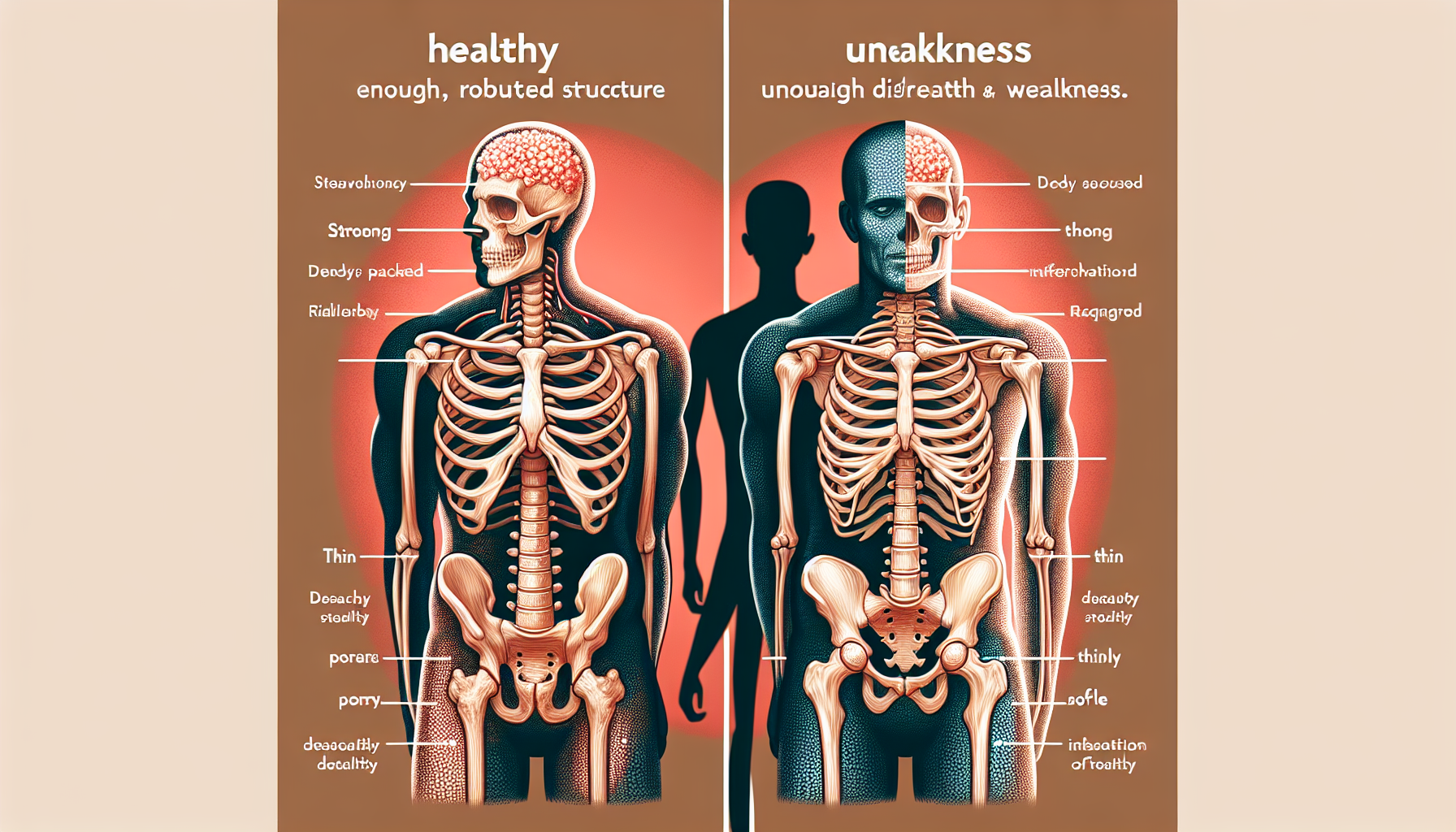Chronic Kidney Disease (CKD) is a condition characterized by a gradual loss of kidney function over time. As the kidneys become less effective, they struggle to maintain the correct balance of minerals and nutrients in the body, which can lead to a variety of health issues. Among these, the impact of CKD on bone density is particularly significant, as it can increase the risk of fractures and bone disorders.
The Kidney-Bone Connection
The kidneys play a crucial role in maintaining bone health. They help regulate calcium and phosphate levels, which are vital for bone formation and maintenance. They also convert vitamin D into its active form, which is essential for calcium absorption.
In patients with CKD, this regulation is impaired, leading to a condition known as renal osteodystrophy, where bones become thin and weak. This disruption in mineral metabolism can lead to changes in bone structure, decreased bone density, and an increased risk of fractures.
For a comprehensive understanding of bone health and how various factors influence it, you can read more on Avix Health’s dedicated bone health page.
The Impact of Mineral Imbalance
With CKD, high levels of phosphorus and low levels of calcium in the blood are common due to the kidneys’ reduced ability to filter and balance these minerals. The parathyroid glands respond by producing more parathyroid hormone (PTH), which helps to regulate calcium and phosphate levels by releasing calcium from the bones.
While this compensates for the imbalance in the short term, overproduction of PTH can cause bones to lose density and become weak over time—a condition known as secondary hyperparathyroidism.
Vitamin D Deficiency in CKD
Vitamin D deficiency is another factor that contributes to bone density loss in CKD patients. The kidneys convert vitamin D into its active form, which is crucial for calcium absorption. When they fail to do so effectively, calcium absorption is reduced, leading to weaker bones.
Diagnosis and Management
Bone density changes can be monitored through regular bone density screenings, which are particularly important for those with CKD. These screenings can help in early detection and management of bone density issues.
Treatment for bone density loss in CKD may involve a combination of dietary adjustments, medications to manage mineral balance, and vitamin D supplements to counteract deficiencies. Addressing the underlying kidney disease and maintaining a healthy lifestyle are also key components of managing bone health in CKD.
For further insights into the importance of regular bone density screenings, consider reading The Importance of Regular Bone Density Screenings.
Dietary Considerations
Diet plays a pivotal role in managing bone health for CKD patients. A diet low in phosphorus and adequate in calcium and vitamin D is usually recommended. Protein intake also needs to be monitored, as excessive protein can increase the kidneys’ workload and contribute to mineral imbalances.
Further information on how dietary choices affect bone health can be found in the article How Dietary Protein Impacts Bone Health.
Physical Activity’s Role
Physical activity is beneficial for bone health, as it helps to improve bone density and reduce the risk of fractures. However, patients with CKD should consult with healthcare professionals to design an appropriate exercise regimen that considers their kidney function and overall health status.
Understanding the positive influence of exercise can be deepened by exploring The Impact of Physical Activity on Bone Remodeling.
Advanced Treatments and Research
Advancements in treatment for bone density loss due to CKD are ongoing. Bisphosphonates, a class of drugs that prevent the loss of bone mass, are being studied for their potential use in CKD patients. However, their use is controversial due to the risk of accumulation in individuals with kidney disease.
For niche and specific resources on the management of bone disease in CKD, the National Kidney Foundation provides guidelines and resources that delve into the intricacies of bone metabolism and treatment options in the context of kidney disease. Another valuable resource is the Renal Osteodystrophy section from the National Center for Biotechnology Information, which offers in-depth scientific insights into the condition.
Conclusion
The relationship between CKD and bone density is complex, involving a delicate interplay between the kidneys, minerals, and hormones that regulate bone health. Understanding this connection is vital for the prevention and treatment of bone-related complications in CKD patients.
Through proper management, including dietary considerations, medication, physical activity, and regular screenings, it’s possible to mitigate the effects of CKD on bone density and maintain a better quality of life.
Lastly, staying informed through credible resources is key to navigating the challenges of CKD and bone density loss. Always consult healthcare professionals for personalized advice and treatment plans.
By addressing the impact of CKD on bone density with a comprehensive approach, patients can work towards preserving their bone health and reducing the risk of complications associated with reduced bone density.



